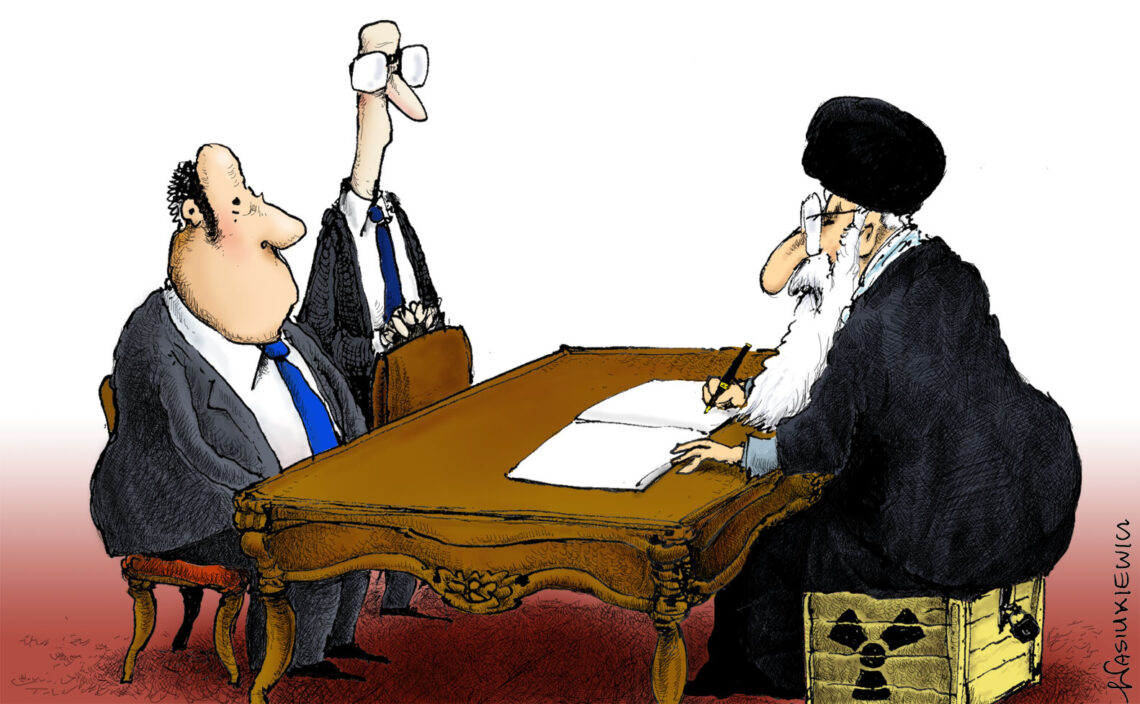Renewed relations with Iran could come at a cost
The United States plan to undo the Trump administration’s withdrawal from the Joint Comprehensive Plan of Action from 2018. The new Iran Nuclear Deal will require careful risk assessment, as Middle Eastern countries may fall prey to Tehran’s political interference.

US President Joe Biden has appointed Robert Malley as his special envoy for Iran. Mr. Malley played a leading role in all negotiations with Tehran during the Obama presidency.
After many years of negotiations, in 2015 the Obama administration, along with the other permanent members of the UN Security Council (China, France, Russia and the United Kingdom) as well as Germany and the European Union, spearheaded the conclusion of the Joint Comprehensive Plan of Action (JCPOA) with the Islamic Republic of Iran. Under this so-called Iran Nuclear Deal, Tehran agreed to dismantle much of its nuclear program and open its facilities to more extensive international inspections in exchange for billions of dollars’ worth of sanctions relief. However, the agreement only delayed further development of Iran’s capacity by halting the construction of nuclear warheads for 13 to 15 years.
Terrorism unchecked
The agreement does not mention Iran’s subversive activities in the region and its sponsoring of terrorist activities. The affected countries were not part of the deal.
Since the establishment of the Islamic Republic in Iran, the regime is striving to become the dominating political, “moral” and religious power in the Middle East. The Iranian system is based on Shia political authoritarianism and socialist economic policy. Shia is the second largest religious branch of Islam and its believers are situated mainly in Iran and parts of Lebanon, Yemen, Iraq, Syria, Bahrain, eastern Saudi Arabia and Pakistan.
Brussels was more concerned with maintaining diplomatic and trade relations than halting terrorist activities.
To achieve regional hegemony, Tehran sponsors insurrections and terrorism through Shia organizations. Hezbollah, a Shia terrorist group, is causing significant disruption in Lebanon, having even achieved representation in the government. Bases in the country are used to launch rockets against Israel. Iran is also supporting the uprising of the Houthi, a Shia-majority tribe in Yemen, as well as disruptive activities in Iraq and Saudi Arabia. There is also some evidence of terrorist attempts in Europe. The Danish authorities, for example, uncovered an Iranian-sponsored assassination plot in 2018.
Tehran’s declared objectives, in addition to maintaining an oppressive regime at home, are to eliminate Israel, fight U.S. global influence and antagonize Saudi Arabia.
In view of the above issues, former President Donald Trump canceled the nuclear deal in 2018, much to the EU’s dismay. Brussels was apparently more concerned with maintaining diplomatic and trade relations than halting terrorist activities and subversion.
Firm conditions
Iran’s aggressive stance has contributed to a Washington-backed alliance between Israel and certain Arab countries – undoubtedly a foreign policy success of the Trump administration. This new cooperation means the region has more clout to rein in Iran’s assertiveness. It will also accelerate the already dynamic technological growth of the Gulf countries and the Arab peninsula.
Robert Malley’s appointment confirms that the new administration in Washington plans to return to the 2015 nuclear deal. In recent months, Tehran has openly declared that it would expand its uranium enrichment program, in violation of the JCPOA. This will allow the country to build nuclear weapons sooner.
The interests of the countries in the region also need to be taken into account.
Iran already knows that Russia and China, and probably Europe as well, will offer their support in the forthcoming negotiations. They seem to be resuming their nuclear development ahead of the negotiations.
To prevent more disruption in the Middle East, it can only be hoped that both the U.S. and Europe will firmly demand that Tehran stop developing nuclear arms facilities and sponsoring subversive or terrorist activities before concluding a new deal. The interests of the countries in the region, their integrity and peace, also need to be taken into account.
